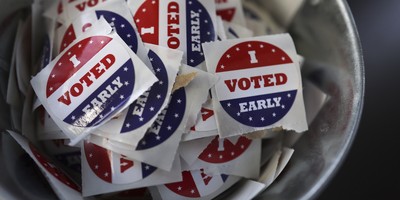Today is Milton Friedman’s 100th birthday. He is a favorite icon of conservatives. But, he should actually be a favorite icon of all Americans. Friedman was no conservative in the way many define conservatism today.
Here are a couple of ideas Friedman was for that aren’t conservative favorites.
1. Legalizing drugs.
Friedman said the war on drugs was a failure. Friedman would have legalized them, ended the war on drugs and all the government spending that went with it. Many misinterpret that he would have liked the taxes we could have received from legalization of drugs. Friedman was never for more taxes. No doubt, we would tax drugs and generate revenue from it. But tax policy and drugs wasn’t the primary reason Friedman was for legalization.
Consumer sovereignty, choice, freedom. When government interferes in the free market, bad outcomes happen.
The things that are most screwed up in our society today are all heavily government regulated. Banking, farming, energy policy, and health care policy. Friedman would argue that most of the regulations on the books in all these industries could go away and the entire society would benefit in the long run because of freedom of choice.
2. Rooting government decision making in religious doctrine
Friedman was an agnostic. It doesn’t mean he didn’t have values, he did. But he didn’t believe some hand of God coordinated everything. For that there was biology, chemistry, and physics. True science. When he began his economics career, most of it wasn’t rooted in empirical study. Friedman turned economics into a science.
He never really opined about issues like abortion. We can only speculate what he thought about it. However, he certainly would have spoken about the economic effects of abortion and the economic forces that cause someone to abort a child-including the government subsidies that affect that decision. I think you’d be on firm ground if you assumed Friedman would be against any government subsidies to things like abortion. At the same time, he probably wouldn’t be against your right to have one.
Recommended
The beauty of the way Friedman and the rest of his fresh water economic cohort taught was in the simplicity. They used high level mathematics to solve big problems. But, in they were able to relate the essence of those very high level difficult problems to average people. Intrinsically, and intellectually everyone understood what they were talking about. I would urge you to read more about how that Chicago School came about and was assembled in this book.
The essence of Friedman is individual liberty. He was a modern day Ben Franklin in that regard. He had more in common with the framers of the Constitution than many of his contemporaries.
Happy Birthday Milton. Many say we need you now-but really, all your ideas are here. We just need people with the will to pick them up and use them.

























Join the conversation as a VIP Member